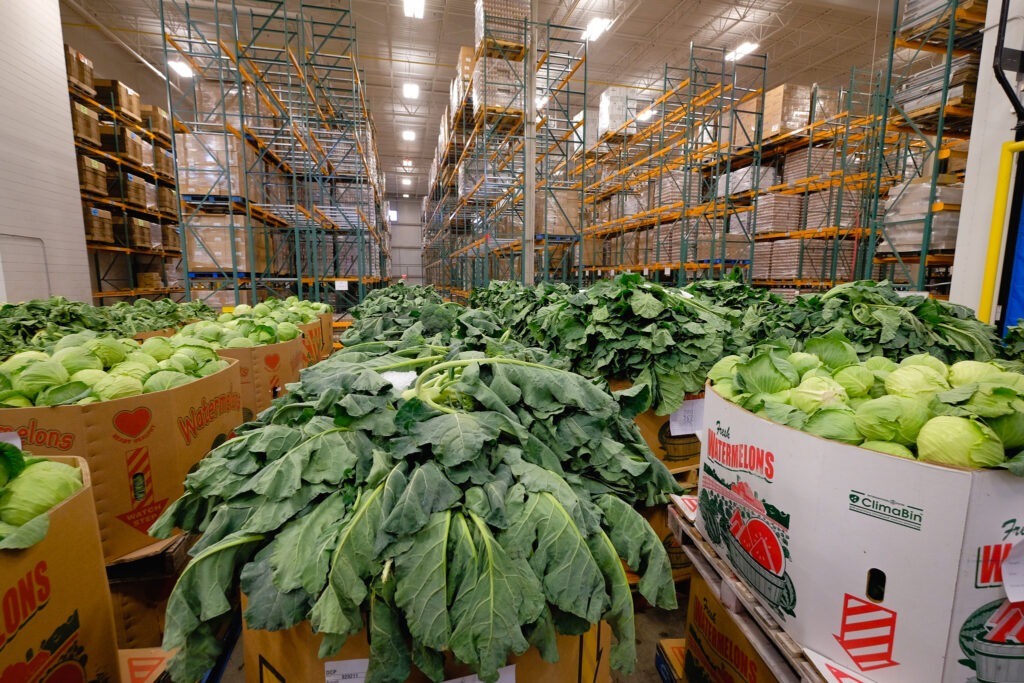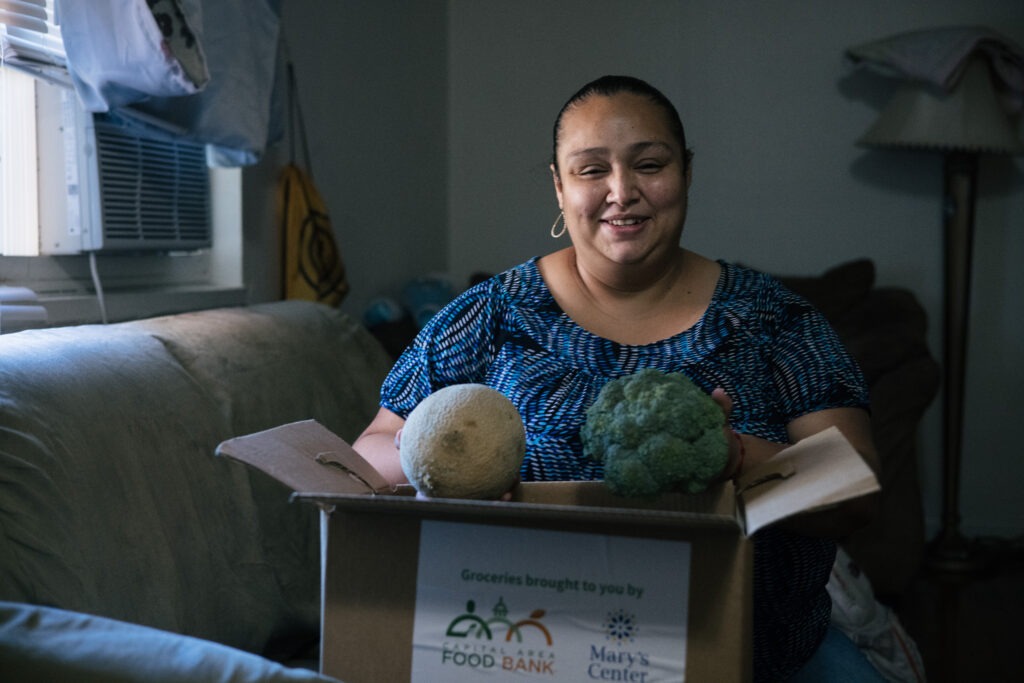Good food is essential for good health.
Food has the power to transform health by helping to prevent and treat diet-related diseases. But far too many of our neighbors struggle with health issues caused by a lack of access to nutritious food – illnesses that can prevent them from fulfilling their potential.
A core part of our work is distributing millions of meals-worth of nutritious, high-quality produce, protein, dairy products, and whole grains each year — all crucial foods for a balanced diet that supports health.

But that’s not all: through our Food+Health programs, we’re also working with hospitals and healthcare providers to make nutritious food accessible directly at the point of care for those in need using “Food Is Medicine” approaches. By helping more of our neighbors get the food they need to manage their health, these programs play an important role in advancing health equity across our community.
What is the "Food is Medicine" movement?
Food is Medicine (FIM) refers to a spectrum of programs and services that respond to the critical link between nutrition and chronic illness. These approaches recognize healthy food as an important part of patient medical care and treatment.
These programs can include produce prescriptions, medically tailored meals, and medically tailored groceries.

Food Plus Health: the Capital Area Food Bank’s Food Is Medicine initiatives
The food bank has piloted several program models geared towards improving the health of the people we serve — not just through what food we provide, but also where and how we make food available.
An example of these programs is our food pharmacy at Children’s National Hospital, where we provide nutritious, medically tailored groceries to patients who visit the Diabetes Care Clinic. Every time they have a doctor’s appointment, patients can receive 30 to 40 pounds of fresh produce and shelf-stable foods, including proteins and whole grains.
A new research study launched by the food bank and Children’s National earlier this year will also contribute to the growing national body of research on food as a form of medicine. Patients in the study will receive home-delivered groceries for a year, and the data gathered will examine how this affects participants’ health conditions, their consumption of healthy food, and their overall healthcare costs. And during the coming months, the food bank will be launching several more of these “food pharmacy” programs with additional regional health care providers.


